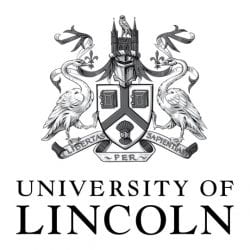An aspiring architectural designer will live and work in New York City after being awarded an international scholarship to explore his own innovative research proposal.
Matthew Taylor (21), who graduates this September with a first class degree from the University of Lincoln’s BA (Hons) Architecture programme, was awarded the John Roberts Travel Scholarship to support him through a nine-month internship with I Beam Design, an award-winning New York based architecture and design firm.
The scholarship was awarded by Lincoln-based John Roberts Architects through the Lincolnshire branch of the English Speaking Union, a charitable organisation that promotes the advancement of international education to bring together and empower people of different languages and cultures. John Roberts was Chairman of the branch for 20 years.
Matthew’s successful application was based on his unique research proposal. While in New York, Matthew will explore issues surrounding safety and security in New York, and examine how the 9/11 terrorist attacks have changed architecture in the city.
Through his research, Matthew will aim to uncover the architectural changes that have occurred over the last 12 years.
Speaking ahead of his internship, Matthew said: “I feel extremely lucky to be able to benefit from the support of the John Roberts Travel Scholarship. It has enabled me to accept the placement in New York, which is a wonderful opportunity. I feel that I will learn a lot from working, living and travelling in a foreign city, and I am very much looking forward to beginning my research project. Many people know about the event, however very few know what happened afterwards architecturally.
“I would like to thank the English Speaking Union, and John personally, for their support and for presenting me with this opportunity.”
The grant, which is awarded to one individual every two years, will see Matthew receive £2,500 towards relocation costs, work equipment and travel fees. John Roberts, Founder of John Roberts Architects in Lincoln, presented Matthew with the scholarship and will visit him in New York later this year.
John said: “I was very impressed with the enthusiasm that Matthew has expressed for his ambitious venture to study in another country. It has always been my belief that travel abroad, especially on one’s own, is one of the biggest educators covering architecture, history, current affairs, relationships and enterprise. I offer Matthew every good wish for a successful and enjoyable year and I look forward to seeing him in New York.”
Carlos Marquez, Senior Lecturer in Architecture and Matthew’s tutor at the University of Lincoln, said: “Here at the Lincoln School of Architecture we are extremely proud of Matthew’s achievements. He is an exceptionally talented and motivated individual, who is always eager to learn more. He is one of the finest examples of the talent we have here at the University, and is certainly on his way up. I am confident that he will enjoy a very successful career and wish him the best of luck in New York.”
Matthew will begin his scholarship in September 2013, and will create a journal throughout his internship that he will present to the English Speaking Union and John Roberts Architects on his return.










